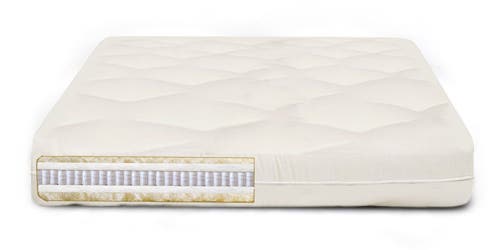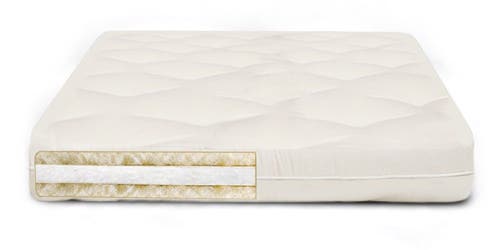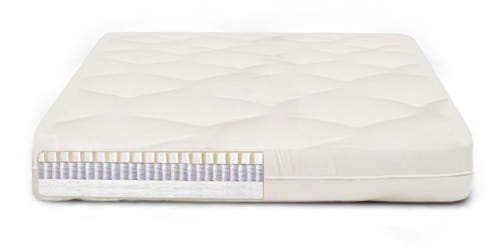
There are many negative effects from conventional cotton farming. Organically grown cotton is a healthier alternative to conventionally grown cotton. To be organic a field must be pesticide-free for at least three years prior to being certified as organic and the cotton must be processed according to international organic standards. In the United States, cotton labeled as organic has to be certified by an independent agency recognized by the USDA's National Organic Program. According to the Organic Trade Association, organic cotton is grown without the use of toxic pesticides or synthetic chemicals, metals or genetically engineered substances. Methods such as beneficial insect releases, strip cutting of alfalfa and new weeding machinery help reduce the environmental impact of cotton crops. Third-party organizations certify that organic cotton farms use only these approved methods and do not spray toxic chemicals on their crops. In 2004, 6,814 bales of organic cotton were harvested in the United States, which is about 3.2 million pounds. That is compared to this year’s estimate of total U.S. cotton production of 19.2 million bales — over 9 trillion pounds. Globally, it is estimated that 120.5 million bales of cotton will be harvested. For more information on organic cotton production see the “Organic Cotton Production” on the National Sustainable Agriculture Information Service website found here: http://attra.ncat.org/attra-pub/cotton.html.
This increase in organic cotton production represents a return to safe and sustainable practices. It is grown with natural fertilizers and is free from toxic chemicals. Organic farmers rely on crop rotation to replenish and maintain soil fertility. Mechanical cultivation and botanical or biological means are used to control pests and weeds. The standards also set strict guidelines for transportation and storage to avoid cross-contamination. Manual farming and organic practices have a lower carbon footprint as the entire process consumes less fuel and energy and emits fewer greenhouse gases. Strict testing ensures the absence of contaminants like nickel, lead, formaldehyde, amines, pesticides and heavy metals. People with allergies and chemical sensitivity especially benefit from organic cotton clothing, as conventional cotton may retain harmful toxic residues. Even if you don't have sensitive skin, organic cotton just feels better.
Recommended Organic Cotton Products:
With our Organic Cotton Pillow Case & Organic Cotton Filling Standard Pillow, you can sleep in comfort knowing your organic cotton bed pillow is natural and unsurpassed for comfort.
What Should I Look For When Buying A Bed Pillow?
What Should I Look For When Buying A Bed Pillow? 
Learn More About Pillow Sizes 
Learn More About Throw Pillows 

Organic Cotton Mattress Collection:
We take extra care to find the best USDA Certified Organic Cotton so we can do our part to support American farmers. Our mattresses cases are made using organic cotton for a plush feel that is soft to touch. When you purchase organic cotton grown without the use of pesticides you support organic agriculture and help protect the environment.
Organic Cotton Crib Beds
Non-toxic baby beds hand made in San Francisco. Chemical Free Crib Mattresses for your baby from infant to toddler. Each Crib Mattress has been tested to meet safety guidelines recommended by pediatricians everywhere to ensure safety and worry free use.
Do Crib Mattresses Contain Flame Retardants?
See Organic Cotton Crib Mattress With Latex
Organic Cotton Futon Cover
48 Organic Cotton Covers Available; Patterns, Solids, Florals, And More
• Elegant
• Lightweight
• Soft
• Breathable
Organic Cotton Free Shipping Sets
The Pure Cotton Mattress is full of natural organic cotton and is a great soft option in the Complete Futon Sets selection with free shipping.






















